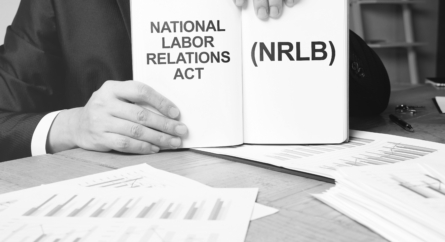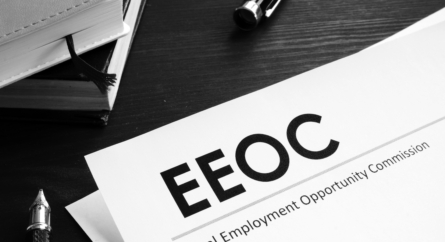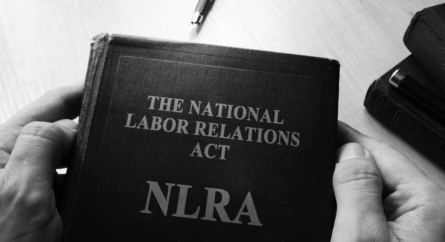Client Alert: NLRB General Counsel Issues Guidance Regarding Confidentiality and Non-Disparagement Provisions Post-McLaren Macomb
As noted in our prior client alerts (Employers Beware – Your Confidentiality Provisions May Come Back to Bite You and Concrete Steps Employers Should Consider When Drafting Severance Agreements in the Wake of McLaren Macomb), in its recently-issued decision in McLaren Macomb, the National Labor Relations Board (the “Board”) ruled that severance agreements with certain types of confidentiality and non-disparagement provisions unlawfully restrict employee rights under the National Labor Relations Act (the “Act”). This ruling has left many employers struggling to determine how to utilize these otherwise standard and important terms of severance agreements without creating significant legal risk.
On March 22, 2023, the Board’s General Counsel, Jennifer Abruzzo (“GC Abruzzo”), issued a memorandum regarding McLaren Macomb (General Counsel Guidance Memorandum No. GC-23-05) (the “Memorandum”). The Memorandum, which reflects guidance from the General Counsel to the NLRB’s field offices, but does not represent the views of the Board, responds to inquiries raised about the impact of McLaren Macomb. In providing this guidance, GC Abruzzo emphasized that McLaren Macomb does not ban severance agreements – or confidentiality and non-disparagement provisions – entirely; employers may continue to proffer, maintain, and enforce such agreements as long as they do not contain overly broad provisions that “affect the rights of employees to engage with one another to improve their lot as employees.”
Retroactive Applicability and Remedying Violations
GC Abruzzo noted that Board cases “are presumed to be applied retroactively” and McLaren Macomb is no exception. According to the Memorandum, while an unlawful proffer of a severance agreement may be subject to the Act’s six-month statute of limitations, attempting to maintain and/or enforce a previously-entered severance agreement with unlawful provisions may be considered a continuing violation, thus, an unfair labor practice claim would not be time-barred even if filed outside of the six-month window.
GC Abruzzo noted that even though it “may not cure a technical violation of an unlawful proffer,” employers should consider remedying such violations now by contacting employees who are subject to severance agreements with overly broad provisions to tell the employees that the provisions are null and void and inform them that the employer will not attempt to enforce those agreements and/or pursue any relief for breach of the unlawful provisions. In GC Abruzzo’s words, such action by an employer “could form the basis for consideration of a merit dismissal if a meritorious charge solely alleging an unlawful proffer is filed.” Employers should be advised that GC Abruzzo’s suggestions on this issue reflect an extremely conservative approach. Employers are advised to confer with counsel before forging that path.
When Confidentiality and Non-Disparagement Provisions May Be Permissible
GC Abruzzo’s Memorandum recognized that narrowly tailored confidentiality clauses, designed to restrict the disclosure of proprietary or trade secrets for a defined period of time and based on legitimate business justifications, are lawful. GC Abruzzo added that OM 07-27, which discusses Non-Board Settlements, remains in effect; that is, employers may use confidentiality clauses that prohibit employees from disclosing the financial terms of a settlement.
As to non-disparagement provisions, GC Abruzzo opined that, under long-standing precedent, narrowly-tailored non-disparagement provisions that are “limited to employee statements about the employer that meet the definition of defamation as being maliciously untrue, such that they are made with knowledge of their falsity or with reckless disregard for their truth or falsity” may still be found lawful.
No Consideration of Surrounding Circumstances
As stated in the Memorandum, when “objectively analyzing whether a provision is facially lawful or not,” the surrounding circumstances simply do not matter; pursuant to McLaren Macomb, “an employer can have no legitimate interest in maintaining a facially unlawful provision in a severance agreement, much less an interest that somehow outweighs the Section 7 rights of employees.” The Memorandum noted that it does not matter whether an employee signs an agreement, as the proffer of the agreement itself constitutes a violation of employees’ statutory rights.
Impact on Other Provisions
While McLaren Macomb focused on confidentiality, non-disclosure, and non-disparagement provisions, in the Memorandum, GC Abruzzo noted her belief that other provisions may also impermissibly impact employees’ rights. Such provisions could include non-compete, non-solicitation, and non-poaching clauses; post-termination cooperation provisions; and broad releases and covenants not to sue (to the extent that they go beyond the employer and/or are not limited to employment claims).
Savings Clauses Won’t Necessarily Save Employers
The Memorandum cautioned that so-called “savings clauses” or disclaimers in severance agreements will not necessarily cure overly broad provisions, noting that employers may still be liable for any mixed or inconsistent messages issued to its employees. Citing her office’s March 7, 2022 brief in Stericycle, Inc., GC Abruzzo renewed her recommendation that the Board develop a model statement of employee rights, which employers could include in employee handbooks and severance agreements.
Next Steps?
The Memorandum reflects the NLRB’s General Counsel’s opinion; time will tell whether it is upheld by the Board itself or endorsed by courts. In the meantime, and as recommended in our prior alert (Concrete Steps Employers Should Consider When Drafting Severance Agreements in the Wake of McLaren Macomb), employers should review their current severance agreements and consider revising them to reduce potential legal exposure while maximizing desired protections for their legitimate business interests.
This alert aims to provide an overview of the NLRB’s Office of the General Counsel March 22, 2023 Memorandum regarding McLaren Macomb. Bowditch & Dewey’s Employment & Labor practice group will continue to monitor this issue and will provide updates as any new developments unfold. Employers with questions about this issue or who are considering adjustments to their confidentiality and non-disparagement provisions are encouraged to contact their Employment & Labor attorney at Bowditch to help them evaluate their options.
Categorized: Client Alerts, Publications
Tagged In: National Labor Relations Board, employee rights, severance agreements, McLaren Macomb











